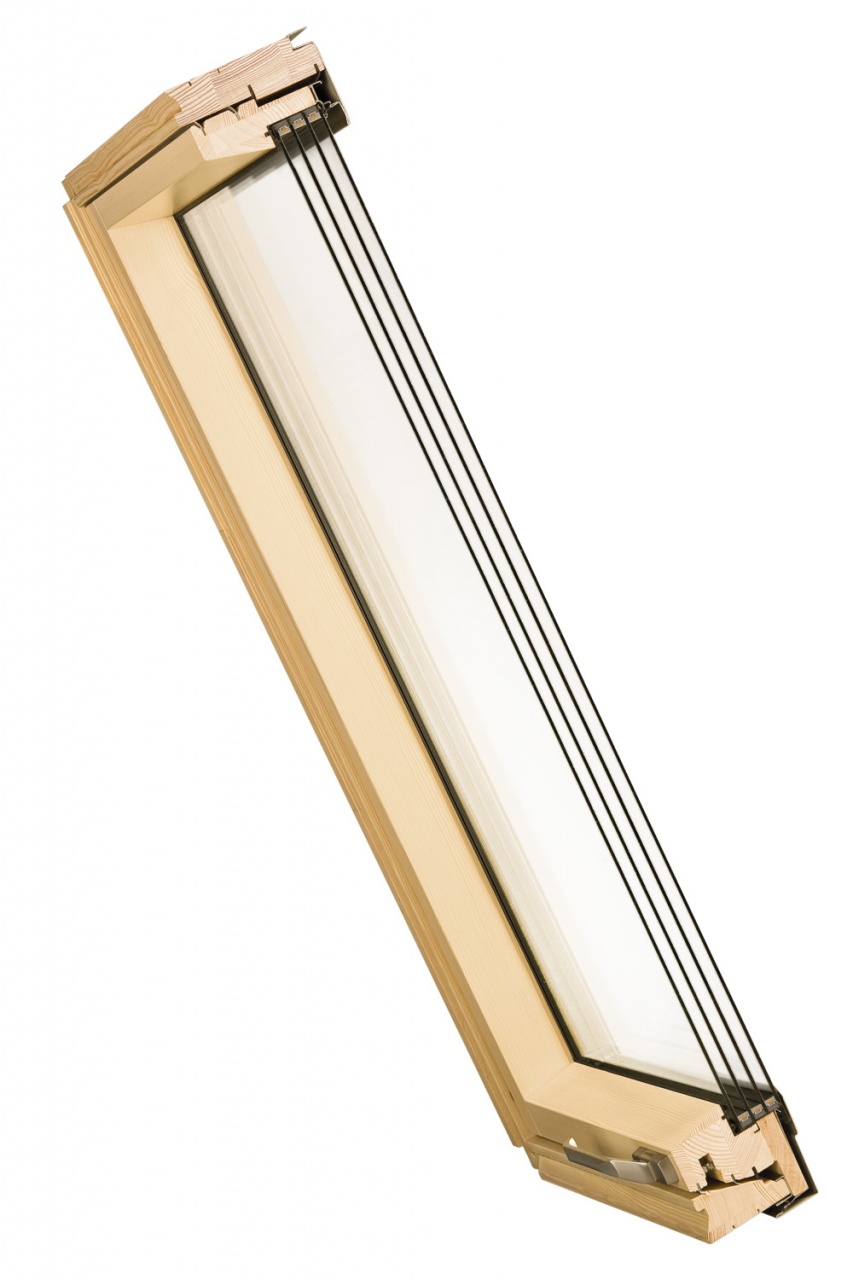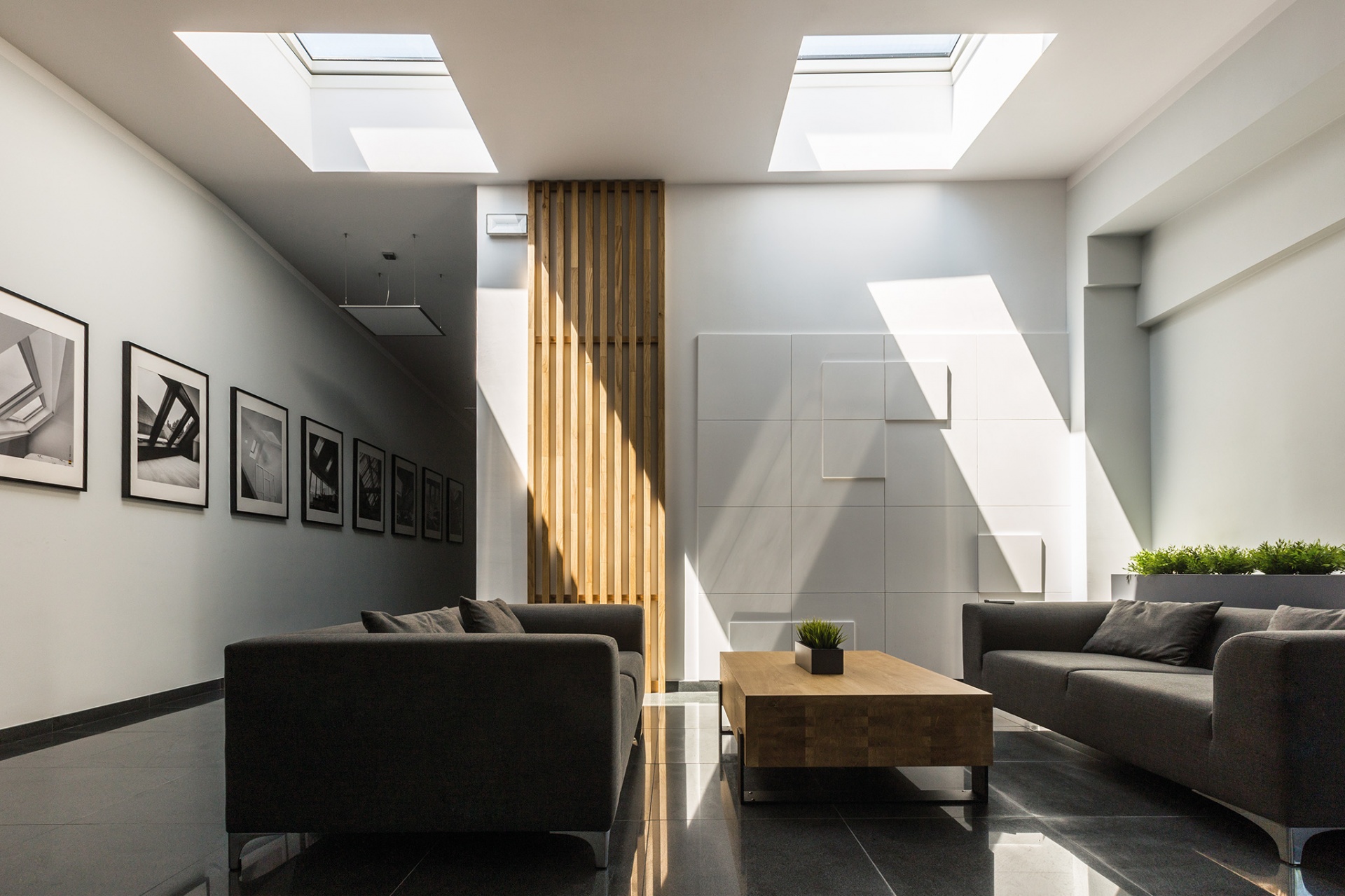What Gases Are Used In Double & Triple Glazed Roof Windows?
Modern windows, whether installed in a single-family home or a large company, must nowadays meet increasingly stringent requirements, especially in terms of thermal insulation. Both investors and manufacturers are constantly looking for innovative solutions to improve window parameters further and provide effective protection against unnecessary heat loss.
One of the key elements of modern windows is the insulating glass unit (IGU). The construction of such a pane is based on two or more panes of glass, which are joined by a spacer and sealant. Between the panes, there is a space filled with a noble gas, usually argon or krypton. It is these gases which, due to their higher density compared to air, significantly reduce the amount of heat penetrating the glazing.
What Are Double-And Triple-Glazed Windows?
Double-glazed windows consist of two layers of glass, between which there is an air space filled with a noble gas, usually argon or krypton. This provides better thermal insulation. Double-glazed windows are competitively priced which means they are widely used. These windows are used in a variety of settings such as modern construction, including flats, single-family houses, or industrial buildings.
Triple-glazed windows, on the other hand, as the name suggests, have three layers of glass that are separated by gas. They are now increasingly replacing double-glazed windows due to their excellent thermal insulation and energy efficiency. They are particularly popular in passive houses, where window and door joinery are of great importance.
Why Use Gases in Double and Triple-Glazed Windows?
The use of gases in double and triple-glazed windows is to significantly increase their insulating properties. Noble gases such as argon, krypton, or xenon are used to fill the spaces between the panes of glass due to their low thermal conductivity compared to air. As a result, double glazing better insulates the building interior from external weather conditions. If you had normal air-filled double glazing, the effect would be negative and heat would easily escape.
As a result, xenon-filled windows, for example, significantly reduce heat loss, leading to lower heating costs in winter and cooling costs in summer. In addition, these gases reduce the risk of condensation on the inner surface of the glass, which contributes to maintaining better indoor air quality and prevents the formation of mould and mildew. As a result, windows filled with noble gases not only provide greater thermal comfort but also contribute to improved energy efficiency and building durability.

Which Gases Are Commonly Used in Glazed Windows?
As we mentioned at the beginning, three noble gases are most commonly used, for example, in double and triple-glazed roof windows. These are argon, krypton and xenon. Each has unique properties that contribute to the energy efficiency of all windows. Argon, which is the most popular choice, is praised for its availability and relatively low cost. Its use significantly reduces thermal conductivity, which helps maintain a comfortable temperature inside the building.
Krypton, although more expensive than argon, offers better insulating properties, making it ideal for use in windows with narrow glazing spaces, such as those with triple glazing.
Xenon, on the other hand, is the rarest and most expensive of the gases, but also provides the highest levels of insulation, although it is less commonly used due to its cost. Choosing the right gas therefore depends on your specific insulation needs, budget and window design.
How Does Argon Gas Improve Window Insulation?
Argon gas, commonly used in glazed windows, significantly improves their insulating properties due to its low thermal conductivity. By filling the space between the panes of glass, argon reduces heat transfer through the window, resulting in better heat retention inside the building in winter and effective blocking of hot air in summer.
The density of argon is significantly higher than that of air, further reducing heat loss by convection. In addition, argon is colourless, odourless and non-toxic, so it is safe to use and does not adversely affect glazing clarity or occupant health. The use of argon gas makes argon windows more energy efficient, leading to lower heating and cooling costs and improved indoor comfort. In addition, better insulation contributes to a reduction in exterior noise, which is important, especially in densely populated urban areas.
Why Choose Krypton Gas for Your Windows?
Krypton gas is an excellent choice for those who want to maximise the energy efficiency of their windows. Krypton, due to its higher density compared to argon, offers much better- insulating properties, making it particularly effective in reducing heat loss.
It is ideally suited to windows with narrow glazing cavities, such as triple-glazed windows, where space to fill with gas is limited. Although krypton is more expensive than argon, its ability to retain heat more efficiently inside a building can lead to significant savings on heating and cooling costs in the long term. Due to their excellent insulation properties, krypton-filled windows also help to reduce external noise, an important asset in noisy urban environments.
What are the Benefits of Gas-Filled Windows?
Argon-filled windows offer a number of benefits that significantly improve the comfort and energy efficiency of buildings. Above all, the noble gases contained in the windows contribute to this:
-
Due to their lower thermal conductivity than air, better thermal insulation is achieved.
-
Windows retain heat inside the building more effectively in winter and limit the influx of hot air from outside in summer.
-
Argon-filled double glazing provides significant savings on heating and cooling costs. Gas-filled windows reduce the risk of condensation on the inside of the glass, helping to maintain a better microclimate inside the building.
-
Gas-filled windows improve sound insulation by reducing outside noise, which is particularly important in densely populated and noisy urban areas.

How to Maintain Gas-Filled Windows?
Maintaining gas-filled windows is key to keeping their excellent insulating properties and longevity. Regular inspection of the gaskets is an essential part of ensuring that the noble gas, such as argon or krypton, remains inside the chamber between the panes. Gaskets should be flexible, tight and free from cracks or damage. If any defects are noticed, it is recommended to replace them immediately.
In addition, cleaning the glazing and window frames with suitable, non-aggressive cleaners helps maintain the clarity and aesthetics of the windows while preventing surface damage. Furthermore, it is important to avoid strong detergents, which can damage seals and protective coatings on the glass. Regular maintenance by professionals can help detect any problems at an early stage, preventing gas loss and reducing the insulating properties of the windows. With proper maintenance, gas-filled windows will last for many years, providing energy savings, and thermal and acoustic comfort.






